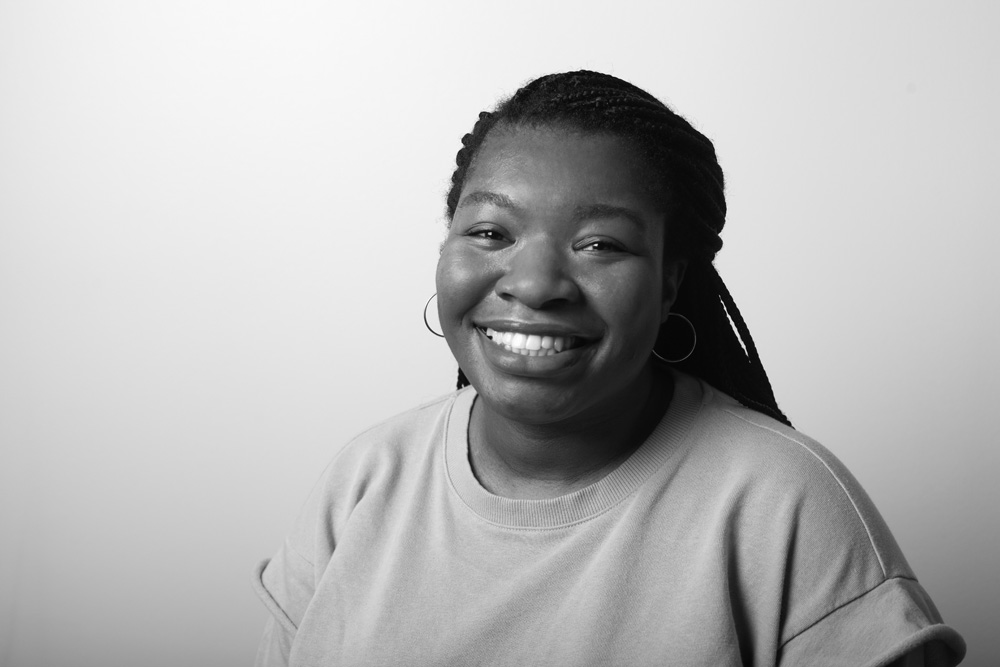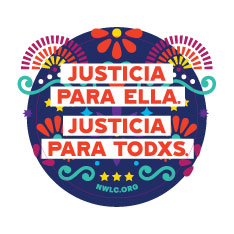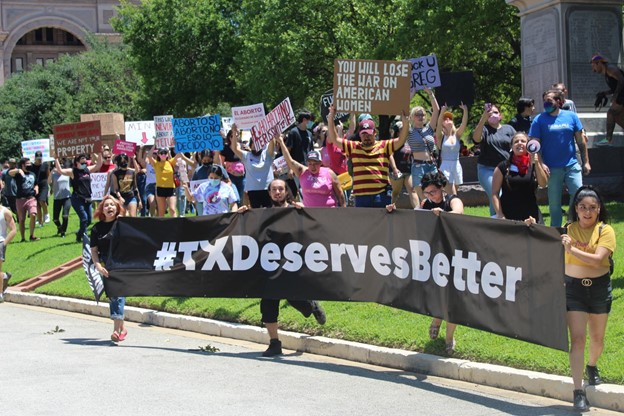Destigmatizing Abortion: You Might Be Doing Abortion Advocacy Wrong!
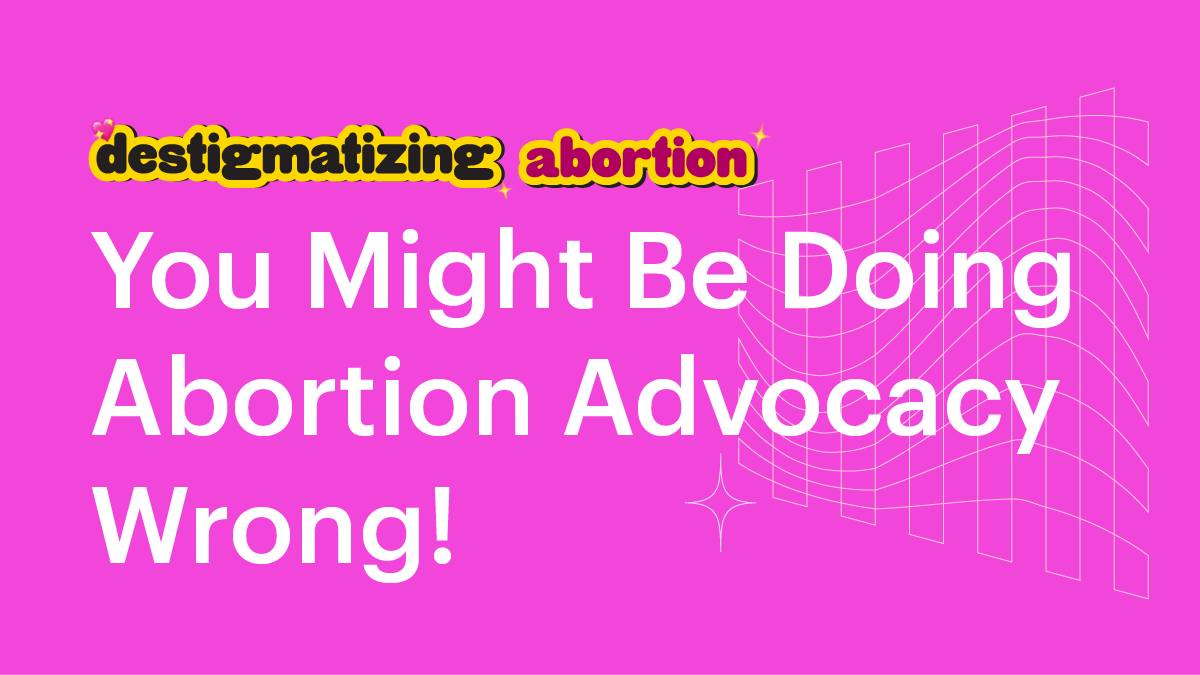
Hey there! If you care about abortion access—and we hope you do—you probably don’t want to draw on historically inaccurate and sometimes racist tropes in your advocacy. Our “Destigmatizing Abortion” series breaks down some of the mistakes a lot of us can make in our advocacy journey.
Today, let’s talk about a couple of common missteps: references to coat hangers, back alley abortions, The Handmaid’s Tale, Sharia Law, and slavery.
We don’t need to reference imagery from a past where abortion was unsafe due to its criminalization because we don’t need to scare people to make them care. What is scary is the criminalization of people who have abortions.

There is no need to wear the outfits of a fictional universe where white women are only considered for their reproductive potential and don’t have agency over their bodies. This is already the reality in our country due to a documented history of eugenics, which has targeted the reproductive justice of people of color and disabled people.
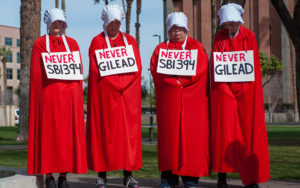
We don’t need to compare anti-abortion lawmakers or abortion restrictions to Sharia Law. These barriers to abortion access are created by white supremacist, Christian fundamentalists; therefore, these comparisons are inaccurate, racist, and anti-Muslim.
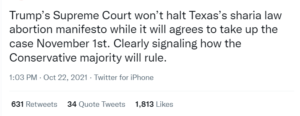
And we–and we’re talking specifically to non-Black people here–definitely don’t need to reference slavery when it comes to abortion access. Barriers to reproductive health care aren’t comparable to chattel slavery in the slightest, and we don’t need an “Abortion Underground Railroad”—abortion funds already exist!
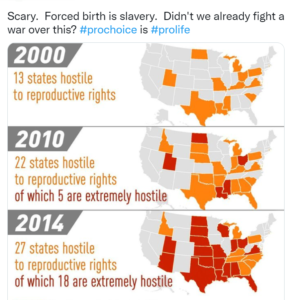
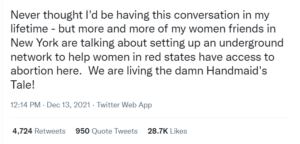
It’s understandable (and also easy!) to want to use either the past or a fictional future to encourage others to take action. The problem with making these comparisons is that they usually are not in line with the reality of abortion access in this country, and tend to be disrespectful and alienating to vital parts of our movement for a better future. When talking about abortion, let’s just talk about abortion and the future we want to see. K? Thanks.

